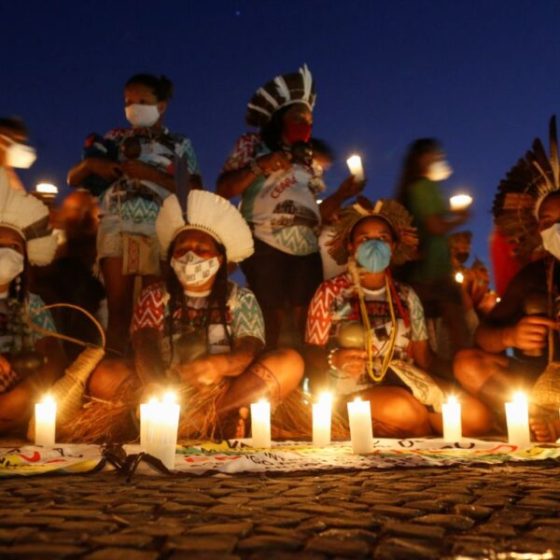
It is only the native neighborhoods who are clarifying the importance of their inclusion in political decision-making with concerns to the environment.
The Indigenous Missionary Council’s (CIMI) annual report on violence against indigenous communities in Brazil in 2020 illustrates an expansion of human rights offenses dedicated throughout Jair Bolsonaro’s second year of his presidency. Under the guise of the coronavirus pandemic, land exploitation continued while native neighborhoods benefited from no state security.
Increased prohibited incursions into indigenous territory by miners, loggers, farmers and hunters contributed to the spread of Covid19 amongst native neighborhoods, which resulted in 900 deaths– a loss in regards to indigenous history, memory and culture.
Additionally, the Brazilian government’s support of land exploitation, in specific the legal proposals to open indigenous area to industrialization, added to an increase in violent clashes over territorial rights, with a boost of 174 percent in 2020 over 2019.
Similarly essential, and in line with the previous stats, is an increase in the variety of native individuals murdered in 2020, when compared to 2019, with 182 and 113 individuals eliminated in these respective years. Last year’s tally represents a 61 percent increase over 2019. Additionally, 304 cases of violence were tape-recorded in 2020, in contrast to the 277 cases recorded in 2019.
In 2020, heritage associated criminal offenses totaled up to 1,191 cases, while suspended demarcations of indigenous territory stays an essential part of Bolsonaro’s presidency with 64 percent of territory still waiting for recognition.
Bolsosnaro was among the world leaders supposedly dedicating to stop logging by 2030, but his performance history indicates otherwise, especially when reports called out the deterioration of Brazil’s environment. The intimidation showed towards organizations and companies is likewise reflective of the violence employed towards native neighborhoods in Brazil, whose indigenous status is mocked by the government and who are the last standing frontline in between the rainforest and Bolsonaro’s exploitative politics.
How does Bolsonaro, for example, seek to minimize deforestation when agribusiness is among Bolsonaro’s primary electoral bulwarks?
At the COP26 conference in Glasgow, indigenous agents highlighted the Brazilian federal government’s contradictions. “If there is no security of indigenous areas and rights, there will likewise be no option to the climate crisis, due to the fact that we are part of that service,” Sonia Guajajara, head of the Articulation of Indigenous Peoples of Brazil (ABIP), stated.
This is one core issue where Bolsonaro is purposefully stopping working, for revenue. A current report highlights how native reserves in Trincheira have actually been targeted by invaders who ruined 20 hectares of forest area and planted turf, leading the way for additional pasture location and affecting 18 indigenous reserves. According to Global Forest Watch, this year’s logging in Brazil is already over 72 percent greater than the same period in 2020. Josiane Tavares dos Santos, leader of Trincheira, described the damage as “ending up being an island in the middle of farms.”
Plainly, the EU for example has failed to observe native cautions. Discussing Bolsonaro’s promises to end prohibited deforestation throughout a meeting with foreign affairs and environment ministers, EU Vice President Josep Borrell specified, “The will is there, since the ministers know that it will benefit Brazil to put an end to prohibited exploitation of the Amazon Jungle.”
In 2019, EU firms were among those benefiting from Brazil’s illegal logging service– a problem which should be investigated as part of the bloc’s complicity in abetting both the Brazilian federal government and illegal deforestation.
It is just the indigenous communities, nevertheless, who are clarifying the value of their inclusion in political decision-making with concerns to the environment. The worldwide neighborhood makes an erroneous difference between native communities and their environment. CIMI’s report need to function as an eyeopener in terms of how native communities require political protection, however the world would choose to dissociate, hence associating politics with businesses and damage with the humanitarian paradigm.

